Best dog car harnesses 2025 for safety and security on the move
We take a look at the best dog car harnesses that will give you peace of mind when out and about
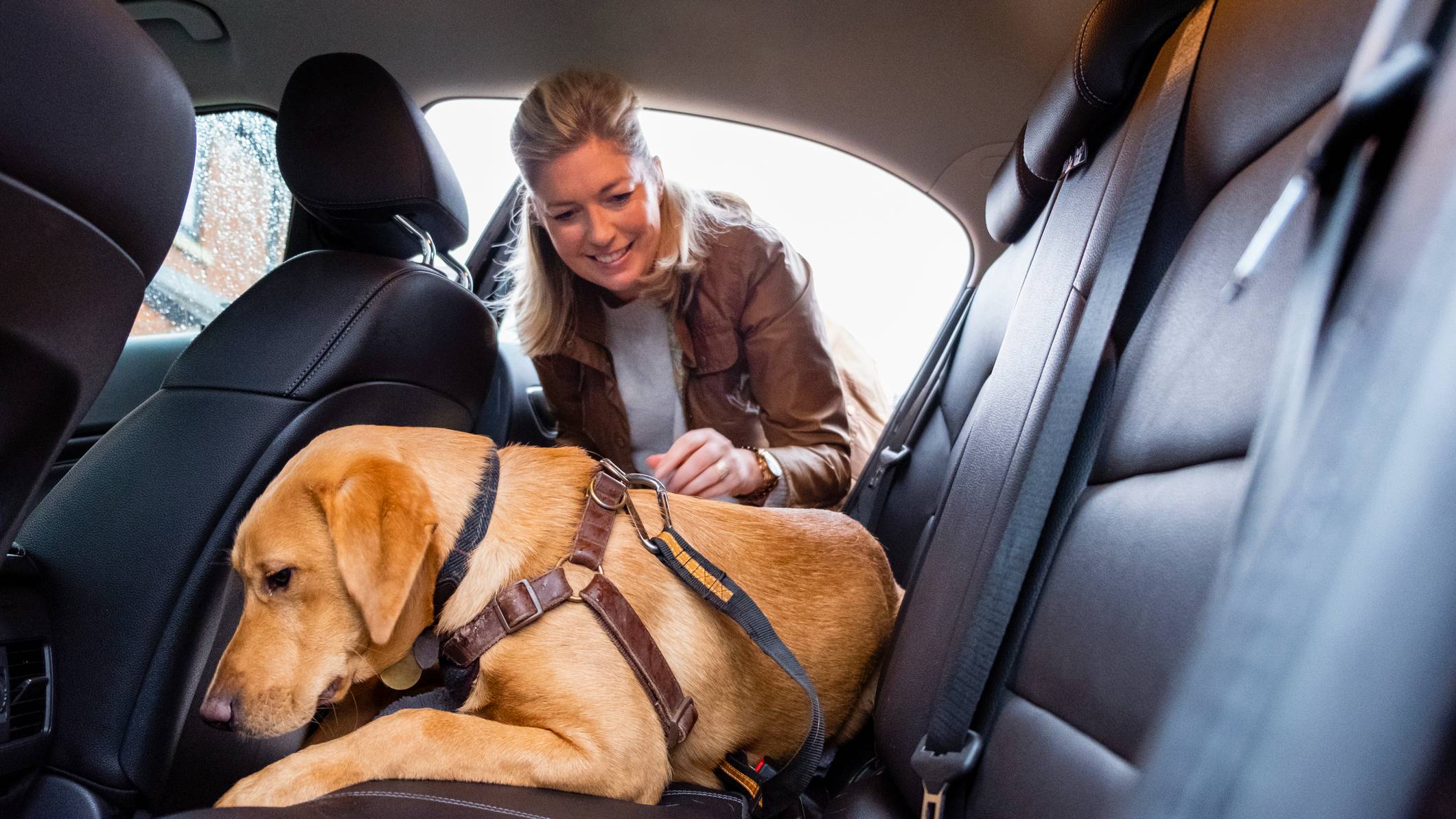
Even if you are not legally required to restrain your dog in a vehicle, investing in one of the best dog car harnesses still makes total sense. Should you be involved in an accident, you will prevent them from being thrown around inside the car or from the vehicle. A suitable dog car harness will reduce serious harm for both you and your pet.
In some instances you don’t have a choice. Safety restraints are recommended by the American Society for the Prevention of Cruelty to Animals and some US states have made it a legal requirement – in the same way that Rule 57 of the Highway Code in the UK states that dogs must be suitably restrained.
But harnesses are not only about avoiding pet injuries in a crash. “They also stop dogs from moving around in the car and distracting you, which could cause an accident,” says expert vet Dr Hannah Godfrey.
PetRadar’s pick of the best dog car harnesses 2025
Why you can trust PetsRadar
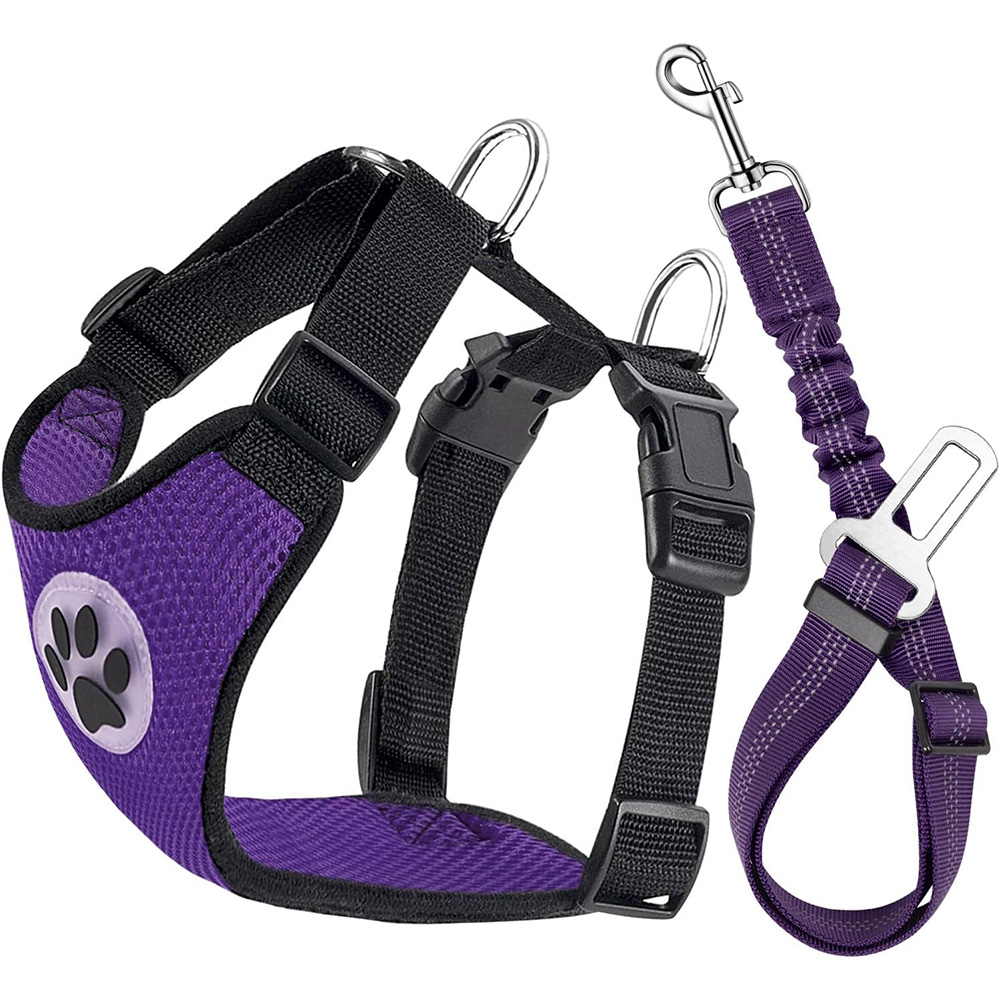
Best overall dog car harness
This seat belt and harness will keep your dog safe and secure every time they’re in your car. Made from a breathable double-mesh fabric, the product has a flannelette edge for comfort and to reduce sweat. It also has four adjustable straps for flexibility and quick-release buckles for each of use, along with a top strap that boasts two D-rings, which allow you to attach a seat belt or a leash for walks. Alternatively, you can double up for a stronger connection.
The seat belt is made from chew-resistant nylon and it has a standardized buckle for in-car compatibility. A swivel clip helps prevent the belt from tangling while the elastic bungee design eases any pull, making rides safer and more comfortable. Just be sure to carefully measure your pooch before you buy. While the harness ranges in size from XXXS–L (neck girth 8.6–31 inches, chest girth 11–37 inches), that’s as far as it goes. There’s no XL in the range so if you own a particularly giant breed, you’ll need to look elsewhere.
Reasons to buy: It includes both a harness and a seat belt and it’s made from chew-resistant nylon.
Reasons to avoid: While there are different sizes available, this harness won’t be suitable for the very largest breeds.
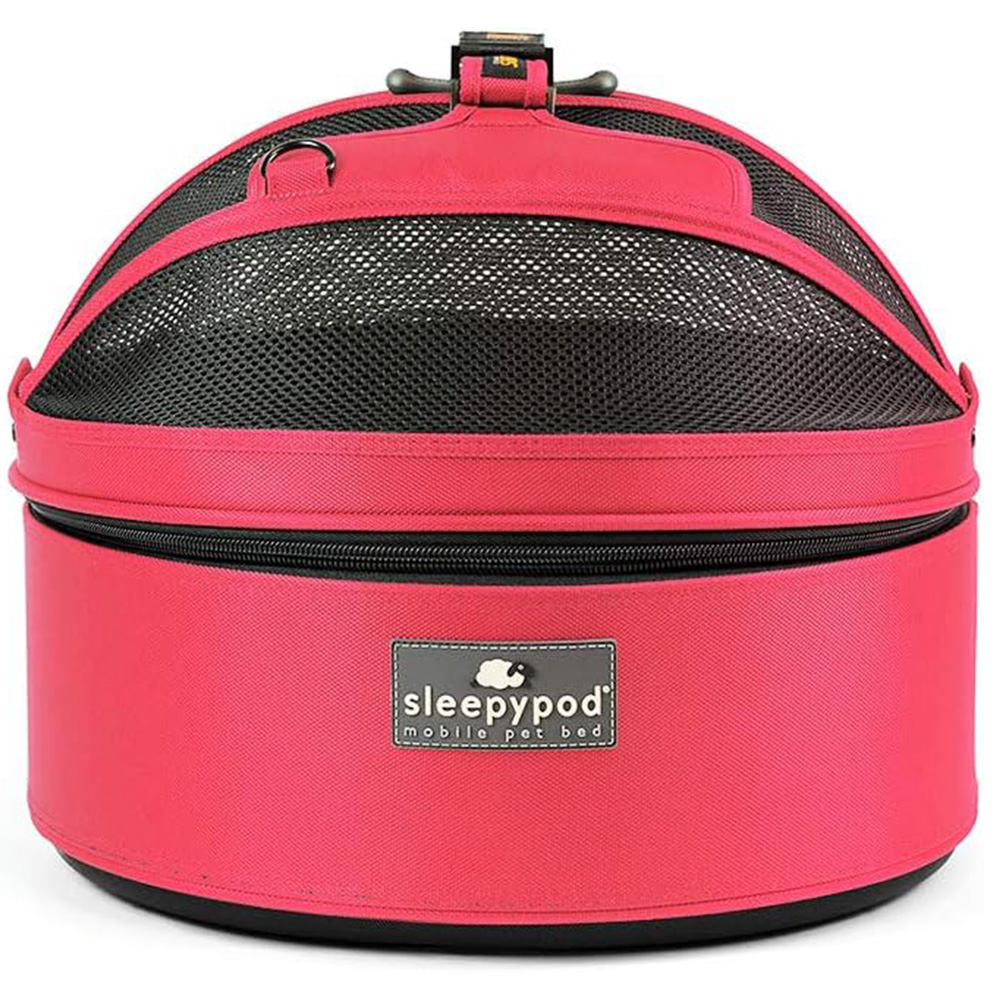
Best car harness for small dogs
To give your pooch the ultimate, comfort ride with a greater feeling of freedom, the Sleepypod is a great solution. It’s more of a car seat than a harness, although it’s designed to be secured using a seat belt. The idea is that dogs are able to lie down and relax or sleep on the ultra-plush bedding and, as a consequence, they are less likely to be stressed when travelling.
They are also less likely to be injured should you be involved in a collision. The Sleepypod has been crash-tested to US, Canadian and EU safety standards and it includes technology that prevents your dog from being thrown out of the seat while reducing damaging forces on your pet. So long as your dog isn’t heavier than 15lbs, you can just zip on the lid and start moving.
As a bonus, the Sleepypod doubles as a pet bed in its own right and it can also be used as a carrier which lends added versatility and goes some way towards justifying what is, in truth, an expensive, luxury product. Yet what price is safety and comfort? For small dogs, it really is an attractive proposition.
Reasons to buy: Easy to install and access, giving small dogs a very comfortable ride in any car.
Reasons to avoid: It’s a pricey solution and it won’t be suitable if you have a dog heavier than 15lbs.
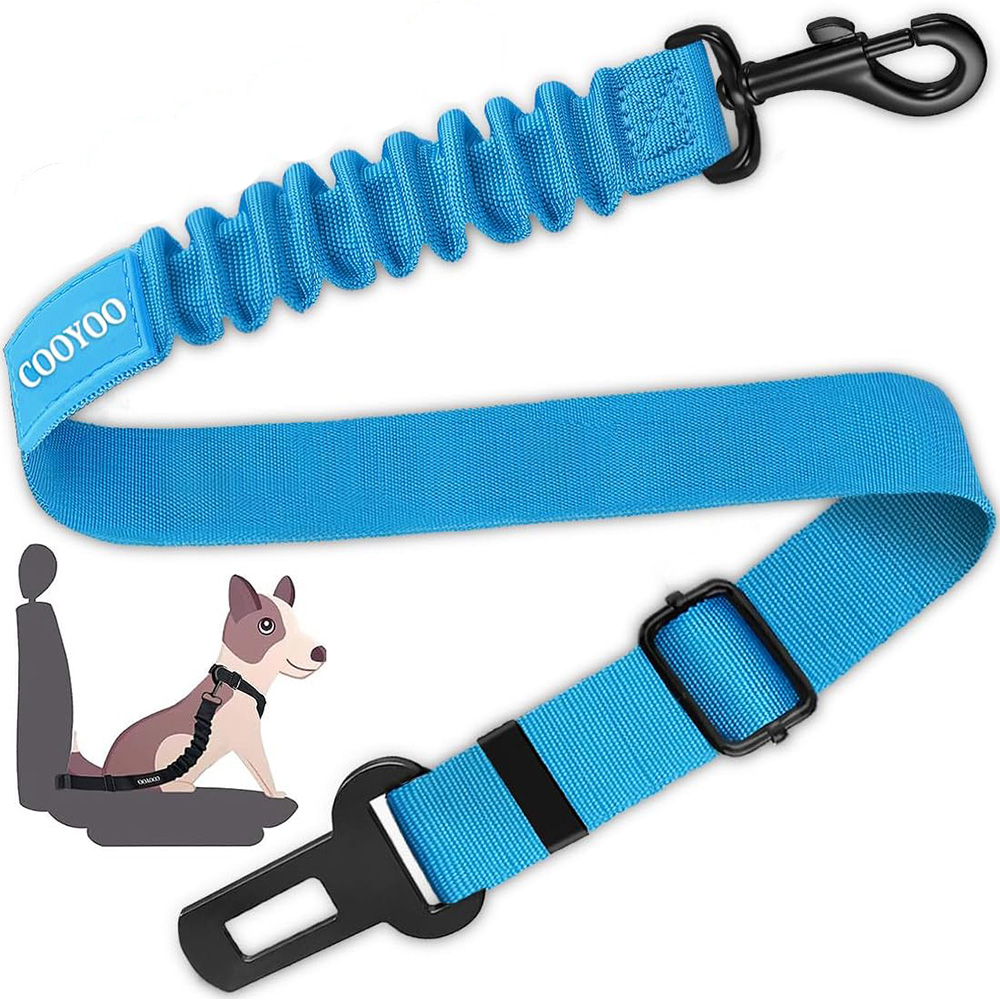
Best budget dog seat belt
For a quick, simple, inexpensive solution that doesn’t compromise on quality, this doggy seat belt is highly recommended. As well as working independently as a safety tether for your car, it can couple up with a harness you already own. And since it’s made from a sturdy nylon fabric with an elastic buffer design, you can rest assured that there’s some give in the lead – your pet dog won’t get an instant jolt if you come to an abrupt stop. It will also lessen the impact on a dog’s neck (and body if it’s being used with a harness).
Each end of the seat belt has a standard-sized buckle that is compatible with most vehicles and there is a zinc alloy swivel snap that supports 360° rotation, which makes the seat belt quick and easy to fit and release while staying tangle-free. You can buy the strap in 11 different colors and it’s extendable from 53–74cm.
Reasons to buy: This is an inexpensive, adjustable easy-to-operate seat belt that comes in an array of colors.
Reasons to avoid: You only get a seat belt. If you’re after a harness as well then you’ll need to look elsewhere.
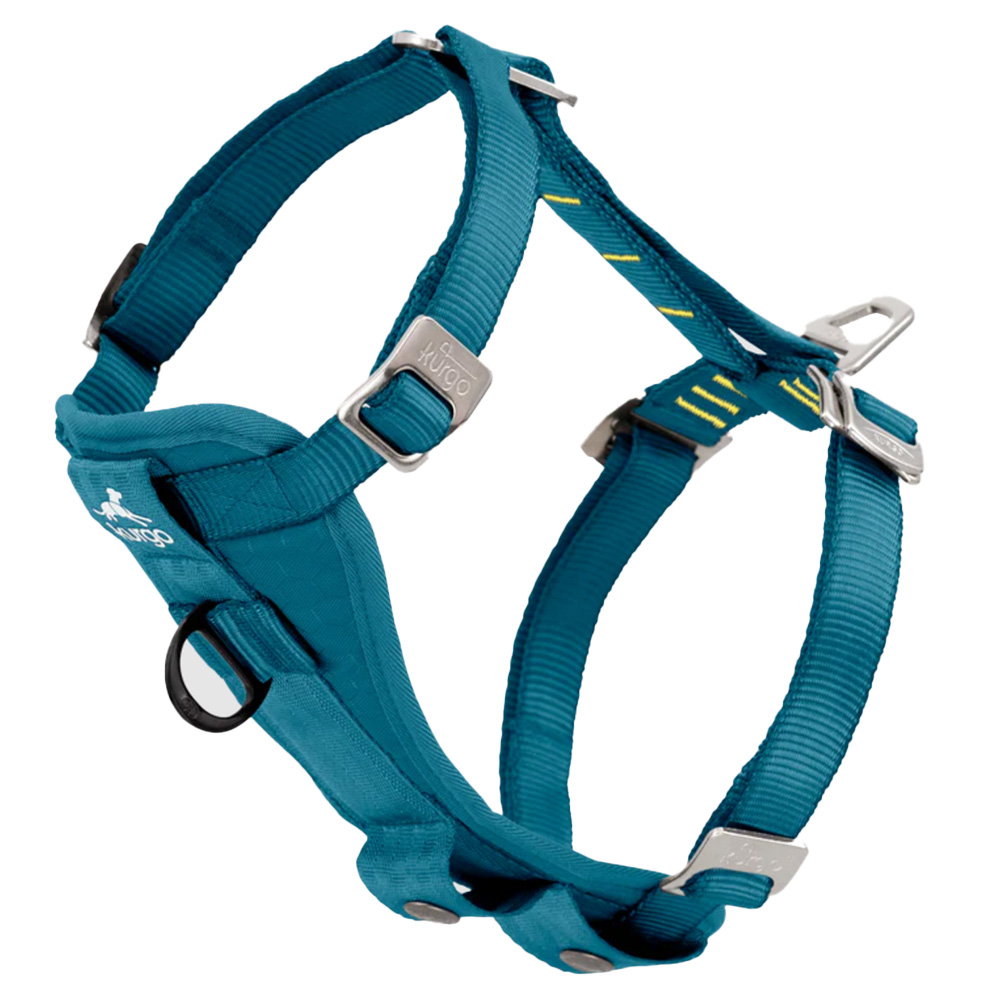
Best crash-tested dog car harness
If you want a safe, secure dog car harness that’s been crash-tested using the US Federal Motor Vehicle Safety Standard for child restraint systems, look no further. This heavy-duty harness was crash-tested for dogs up to 108lbs (48.9kg).
The harness includes a no-pull D ring on the front surrounded by heavy-duty strapping and stitching for strength. There are five adjustment points for a custom fit and a padded chest for comfort. But there’s no seat belt plug. Instead, there’s a separate seat belt loop tether with a carabiner. Clipping on the harness isn’t that simple. You have to get around the harness and seat belt at the same time and it doesn’t leave a lot of room to maneuver.
Still, it’s protective. The medium-sized harness is ideal for dogs 25–50lbs and the large size is recommended for breeds 50–80lbs. For larger breeds such as Newfoundlands choose XL, but for breeds over 110lbs you’ll need to look elsewhere.
Reasons to buy: The harness has been crash-testing and there are five adjustment points for a custom fit.
Reasons to avoid: It may feel a little over the top for small breeds and it’s comparatively pricey.
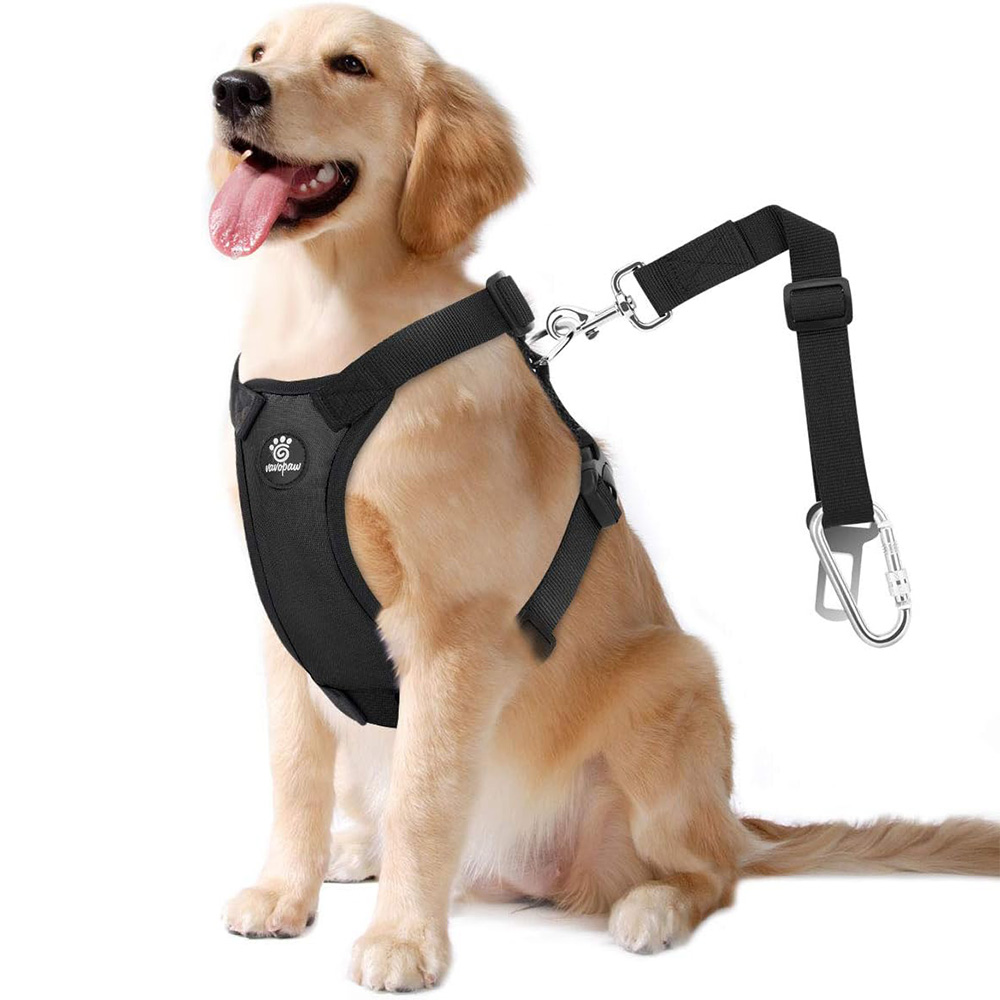
Best car compatible dog harness
Equipped with a standard seat buckle and a sturdy carabiner, this harness and seat belt combo gives you two ways of securing your dog when on the move. It means if you happen to have a vehicle that’s incompatible with the buckle, you’ll have the carabiner as a backup. And, if the seat belt is compatible, you have two options to secure your hound, ensuring an extra secure fit and giving you peace of mind.
At the other end of the adjustable seat belt strap is a standard swivel snap hook for a quick fit to the solid D-ring on the harness and, since the strong polyester harness uses an X-shaped structure, it helps spread the load. Combined with the well-padded design and shape of the harness, your dog will enjoy a secure and comfortable fit that they will be happy to wear.
The seat belt comes in four different sizes (S–XL) and you can choose from four different harness sizes, again from S–XL. The XL will be plenty big enough for a German Shepherd and similar-sized breeds. There is also a choice of five colours.
Reasons to buy: The double seat belt fixing options lend flexibility and we like the X-shaped structure for comfort and safety.
Reasons to avoid: You can choose the harness size but you can’t independently choose the length of the seat belt.
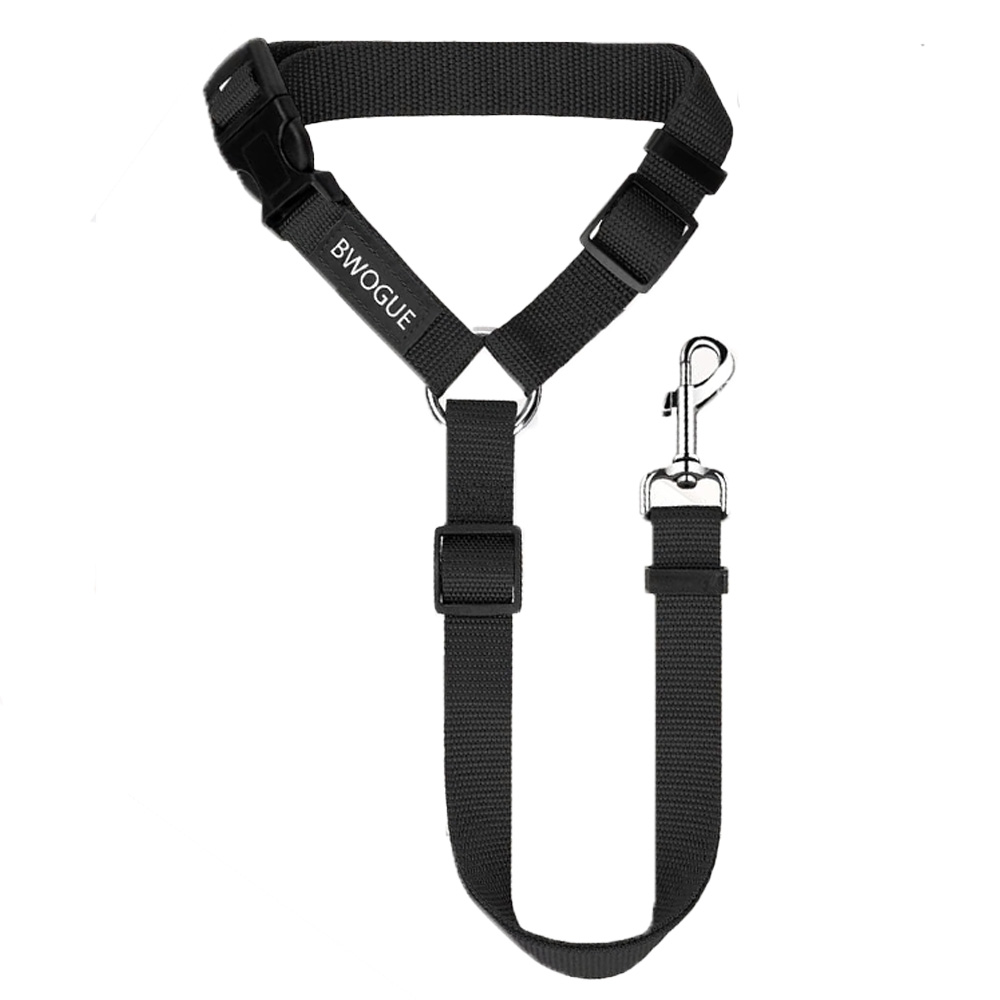
Best car harness for multiple dogs
Already own a harness and just need a seat belt leash to keep your pet pooch safe and secure? Then this easy-to-use safety strap could just be what you are looking for – and you get two into the bargain that are one-size-fits-all so can be shared.
Made from strong, durable nylon, it quickly and easily slips over the headrest in your vehicle car to instantly transform into a safety seat belt – no messing about trying to plug into a seat belt socket that isn't always easy to find when your dog is sitting down. There’s flexibility in the adjustable straps, too. The top strap that goes around the headrest, has a minimum size of 13in but can be quickly pulled out to 21in for larger headrests. The safety strap can be shortened to 18in or pulled out to a maximum length of nearly three feet to allow plenty of freedom for your dog.
One downside is no mention of how much weight it can safely take but when you have finished with it, you can slip off the headrest in a second and put it away. Thanks to its design, it transforms into a leash with a top strap making a comfortable grip handle.
Reasons to buy: It’s quick and easy to fit and it doubles up as a leash with a handle. You also get two in a pack.
Reasons to avoid: It should be suitable for most breeds, but if you have a large dog you’ll maybe want to look for something a little more sturdy.
How we chose the best dog car harnesses
Safety has got to come first so we kept a keen eye out for any dog car harness that has been crash-tested. We also looked for harnesses that came in as many different sizes as possible because it is important you select the right size and fit so that your dog is comfortable and secure. On top of that, we bore in mind that the best car harnesses use the existing seatbelt system within a car as these are already very safe and sensitive to impact.
How to get the right fit?
Dogs come in all different shapes and sizes, so it's important that you find a harness that fits your pet. First, check that the harness is suitable for your dog's breed and check any measurement charts the manufacturer might have because not all sizes are standardized. A medium fit with one manufacturer might be slightly different from another. Check the weight limit for the harness if available as well.
Here are more tips on how to measure a dog for a harness.
Should I buy a crash-tested car harness?
A lot of dog harnesses aren't independently crash-tested, but this doesn’t mean they don't do the job they are intended for. You should also know that just because a harness has been crash-tested, that doesn’t necessarily mean it passed. According to the Center for Pet Safety, an independent organization, the majority of manufacturers only test one size, so the size you choose might not have been tested.
Yet a crash-tested car harness offers extra peace of mind.
“Choosing a harness that has been crash-tested provides some reassurance compared to those that haven’t, says vet Dr Hannah Godfrey. “It’s important to read the fine print to get the true picture of to what extent the equipment has been tested,” she adds. “This is because dogs of different shapes, sizes, and weights will behave differently during a crash.”
Do dog harnesses come with seatbelts?
Often, yes, but not always. You commonly get a harness and a seat belt. A harness that fits around the body is a safer and more comfortable option, as it spreads the jolt of an impact and can double up as one of the best dog harnesses for walking. However, they don’t allow as much freedom of movement, which can be a problem for some dogs, especially on longer journeys. For shorter journeys around town, a seat belt will do the job and they’re often quicker and easier to put on, too.
Can a harness injure a dog if it’s not fitted properly?
Yes, in the same way that not strapping a baby in a car seat can cause injury.
“A poorly fitted harness can cause rubbing and irritation, just like a standard walking harness,” says Dr Godfrey. “However, even more concerning, an ill-fitting dog harness may not hold your dog securely during an impact, or it might cause pressure on fragile areas, leading to injuries including fractures, internal bleeding, or suffocation.”
Here are more tips on how tight a dog harness should be.
How to calm a dog nervous of travelling
“Not all dogs enjoy the car. For some, it makes them anxious, and for others it makes them feel unwell or travel sick,” says Dr Godfrey. “If your dog is nervous about the car, consider using a calming spray [like this one on Amazon] on a favorite blanket to help reassure them. Your vet might also be able to provide mild sedatives or other calming medication, but this should only be used as a last resort.
“First, try introducing your dog to the car gradually,” Dr Godfrey suggests. “Use positive reinforcement techniques, until they are comfortable going for longer journeys.”
When driving with a dog, what else should people be wary of?
Dog car harnesses are not a total safety fix. Other factors can affect the safety of you, other passengers and your dog.
“It’s important to make sure that you can concentrate fully on driving – it’s really hard to concentrate if your dog is barking, distressed, or unwell,” says Dr Godfrey. “If your dog isn’t settled and is making noise or behaving in a way that is distracting, it’s best to pull over and try to settle them rather than continuing your journey.
“If another person is in the car, having them sit nearby to reassure your pet may be helpful, but make sure that everyone is safe and wearing a seatbelt. In addition, whenever you travel with your dog you should make sure you stop regularly so that they can have a toilet break and an opportunity to eat, drink, and stretch their legs.”

Dr Hannah Godfrey studied Veterinary Medicine at the Royal Veterinary College London. After graduating in 2011, Dr Godfrey went on to become a veterinary surgeon, conducting surgery consultations on a range of animals at a small independent practice in Cardiff, South Wales, UK. Dr Godfrey has a strong interest in soft tissue surgery. When she’s not helping animals back on their feet, Dr Godfrey writes a number of veterinary and animal-focussed articles.
PetsRadar Newsletter
Get the best advice, tips and top tech for your beloved Pets

David Crookes has been a journalist for almost 30 years and he has written for a host of magazines, newspapers, websites and books including the World of Animals Annual, BBC Earth, Live Science, The Independent and Tom’s Guide.
Born in England, he lives with two cats but he’s also keenly interested in the differences between the huge number of dog breeds – in fact, you can read many of his breed guides that he’s written in collaboration with vets here on PetsRadar.
With a lifelong passion for technology, too, he’s always on the lookout for useful devices that will allow people to keep their pets happier and healthier, and provide them more time to spend together.
David has a degree from Durham University, as well as postgraduate diploma in journalism from the University of Central Lancashire.
